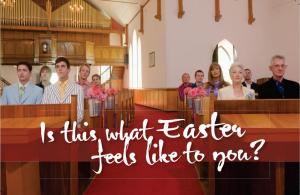
The party in political power at the moment has asserted a reinterpretation of Jesus’ and the Bible’s teachings about our neighbor. Who the neighbor is, and what our responsibility to them is in relation to our responsibility to ourselves and our closest circles of family and community. We see it being played out in executive action and legislative inaction. On January 29, 2025, Vice President JD Vance in a Fox News interview said, “There is a Christian concept that you love your family and then you love your neighbor, and then you love your community, and then you love your fellow citizens, and then after that, prioritize the rest of the world. A lot of the far left has completely inverted that.”
No, there isn’t s biblically based Christian concept like that, Mr. Vance. There are many issues that can be seen differently but this is not one of them. Neither Jesus nor the Bible in general have any ambiguity on this issue. In fact, biblically speaking, asking whether there is an order to our responsibility is the wrong question to ask. The question isn’t “who first?” but “who needs us?” We are directed to love others, and yes that can be hard and require sacrifice on our part, but it is intrinsic to the life and faith of Jesus and the message of the Bible. Let me walk us through a few places in the Bible where this is made clear.
Jesus’ parable known as The Good Samaritan told in Luke’s Gospel (Luke 9.25-37) speaks directly to this. It starts with an expert on the law, someone who teaches and explains the Torah in the synagogue, coming to Jesus to test him. He asks what he must do to inherit eternal life. The word ‘test’ suggests that he was there to try to trip up Jesus. And Jesus characteristically turns the question back to the man. “What does the law say? How do you read it?” To which the man answers “You shall love the Lord your God with all your heart and with all your soul and with all your strength and with all your mind.” This comes right from the Torah he is the expert on. That love mentioned doesn’t mean to just adore God, but to align with God’s ways, be in right relationship with God, or to use biblical language, be righteous in God’s eyes. Then he adds another bit of the Torah as if it were part of the former, “and [love] your neighbor as yourself.” Loving oneself is affirmed but not as an end to itself, it is a model for loving the neighbor.
Jesus tells him he got it right, “You have given the right answer; do this, and you will live.”
That leaves some wiggle room though. After all, those strangers far away, or new to my community aren’t really neighbors, right?! And that is exactly the question the man returns to Jesus, “Who is my neighbor?” The story tells us he asks this to justify or vindicate himself. Perhaps that means to get himself off the hook for the implications of what he just said the Torah, the Bible, says. Regardless of his motives Jesus’ answer has the same message, and he answers with a story, a parable.
The story is likely familiar. A man was on the road out of Jerusalem and was mugged. Stripped, robbed, beaten and left in the ditch. Two people pass by – both Jews. A priest and a Levite. People of authority in the religious and civic life of the time. They pass by ignoring the man. Then the parable tells us a third came by, a Samaritan. Samaritans aren’t Jews and, to use modern terms, are highly polarized from the Jews. Of the three, this is the one we would least expect to help, but he does. The Samaritan tends to him, inconveniences himself, pays for his care and follows up with him.
At the end of the parable Jesus asks, “Which of the three was a neighbor to the man who was robbed?” The man of the law not quite able to say the name “Samaritan” says, “The one who showed him mercy.” To which Jesus says simply, “Go and do likewise.” [It is worth noting that Jesus doesn’t say, “Wait and do likewise, if someone with need shows up.” Jesus says “Go!” He calls us to action. He sends us out to seek and serve the brother or sister in need.]
Jesus defines neighbor as the person, known or unknown by us, near or far. Simply put, everyone. And he defines the nature of our relationship with our neighbor: Care for them. Not if it is convenient, not if we have everything of our own fully taken care of. No, “Love your neighbor just like you would love yourself.” A command that is repeated in Matthew and Mark’s gospels, and in Romans, Galatians, and James. Love the outsider, love the needy, whoever they are, just like you would love yourself. That is a reflection of loving God with your heart, soul, strength, and mind.
This teaching of Jesus isn’t meant to take away from self-care, nor be an excuse for neglecting our own family or community. Rather it is there to remind us of the larger family we are inextricably part of. God’s family.
Let’s look at another familiar story from Jesus. As he is teaching he talks figuratively about The King, God, who speaks to those who have either done or not done what he willed them to do (Matthew 25.31-46). They were asked to ‘feed the hungry, give a drink to the thirsty, welcome the stranger, clothe the naked, care for the sick, visit the imprisoned.’ He ends by telling his listeners and us, “Just as you did it to one of the least of these brothers (and sisters) of mine, you did it to me.” The ‘least’ of my people; the most trivial, insignificant of them. No conditions. In prison rightly or wrongly. Familiar or stranger. Deserving or undeserving. They all count, they are all neighbors, God’s people, our family. There is no order among them giving preference to those nearest you genetically or geographically. After all, according to Jesus’ story it is The King, God, whom we are loving when we do this.
We can reach into the Old Testament and find this theme played out repeatedly as well. God doesn’t prioritize the powerful or the familiar over others. More often the Bible gives a seat at the table to one whom others wouldn’t expect, understand, or like; Joseph, Moses, David to name a notable few. After all, Israel itself was made up of the least among the people of their day, and Good loves, provides, and executes justice for the outsider as this passage from Deuteronomy (10.17-19) records.
For the LORD your God is God of gods and Lord of lords, the great God, mighty and awesome, who is not partial and takes no bribe, who executes justice for the orphan and the widow, and who loves the strangers, providing them food and clothing. You shall also love the stranger, for you were strangers in the land of Egypt.
We can cite example after example of this basic recognition and value of the stranger, like in Paul’s letter 1 Corinthians 10.24 “Do not seek your own advantage, but that of the other, the neighbor” but the best witness is God and Jesus themselves. “For God so loved the world (read everyone and everything), that God gave his only son…” (John 3.16) No prioritization or protection for those close to oneself in God’s love there! God so loved seemingly others that he gave up what was closest. Wow! And then there is Jesus. He was a model of self-sacrifice for humanity. He gave a gift to all people – that includes you, it includes me – of what was closest and most precious, his life.
As individuals, and as a nation, do we care for our own first, and then those close to us, and if there is enough, then others too? Is it the responsibility of those closer to them to care for them, not ours?
Or do we seek to help the marginalized, the poor, the disadvantaged? Do we welcome the stranger? The latter is what Jesus did, and his word to us, “Go and do likewise.”


 With
With 







